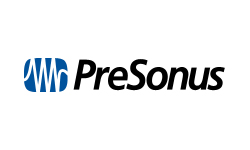 NAMM: PreSonus announced version 1.1 of its Studio One DAW software, which adds multiple features and enhancements.
NAMM: PreSonus announced version 1.1 of its Studio One DAW software, which adds multiple features and enhancements.
You can now draw automation waveforms, and automation points can be locked to selected events, so automation moves with the related events. A transform function lets you scale, stretch, and otherwise modify automation envelopes. An Undo history enables viewing and undoing all edits done since the file was opened, even if you have saved since then. A pitch-name editor is available in the drum layout,and you can save and load names from a pitch-name list.
Version 1.1 is expected in Q1 of 2010 and will be a free update to registered users.
Details below.
PreSonus Studio One v1.1
Version 1.1 adds a new key-command editor with Search and Learn features for creating and modifying keyboard shortcuts. The search feature finds specific key commands and shows which functions they trigger and also finds specified functions and displays the key commands to which they are assigned.
Studio One now uses dynamic time stretching to change tempos within an event, rather than having to slice the event into separate events with different tempos. Constrain position when dragging events between tracks within a defined range, use a keyboard shortcut to fast-forward and rewind by measures, and accelerate scrolling while dragging with the new Turbo mode.When you select a region on a track, you can now extend the selection using Shift and the Up/Down arrow keys. When you select and remove a range in the Edit menu, the time in between regions will be deleted and the regions will snap together.
An Upload as Digital Release option has been added to Studio One Pro’s Project page, and you can include album and song art. A new menu item enables you to upload songs, art, and metadata to the Soundcloud Web service.
Several changes have been made to the Native Effects plug-ins. The Pipeline plug-in has gained a scope that enables you to manually alter the offset (in samples) for latency compensation. The scope displays send and return signals on top of each other and shows you the difference in realtime, enabling you to manually adjust delay compensation, which is much more accurate than the automatic delay compensation found in some DAWs. In addition, latency compensation has been enabled for effects on input channels, so if you put an effect on an input channel, the software will ensure that the recorded track and processed input remain aligned.
Plug-ins can now be bypassed, and this can be automated. A new Level Meter plug-in provides an extra-large peak/RMS display. The PreSonus Presence virtual instrument has been redesigned, upgraded to 96 voices, and enhanced with effects, including a 7-band graphic EQ with settings for Lead (center frequencies range from 50 Hz to 10 kHz) and Bass (100 Hz to 6.4kHz).
The Impact VI adds Velocity layers, an envelope Hold parameter, and a multimode low-pass, bandpass, or high-pass filter with 12 dB or 24 dB slope. To load effects to a specific output channel, just drag the effect onto a pad.
Version 1.1 includes several MIDI enhancements. The file Browser has gained a MIDI preview player that sends the MIDI data to a selected Instrument Track for playback. The player displays the MIDI file’s length in bars and the number of notes in the pattern. Previously, MIDI quantization only affected Note On messages; now note ends (Note Off) can be quantized, as well. The Gate plug-in now sends MIDI note messages—perfect for drum replacement. And instrument devices can send MIDI Time Code to external equipment such as a keyboard workstation or a SMPTE converter and video player.
The export features have been significantly improved, including the ability to export entire channels as stems, complete with buses, effects, and instrument returns. In addition, when you export adjacent regions (between markers), you can now create custom-length overlaps at the head and tail of each region so that you can crossfade between the exported files. This works sort of like a pre-roll and post-roll. Studio One creates a folder for each region with a name derived from the marker name.
